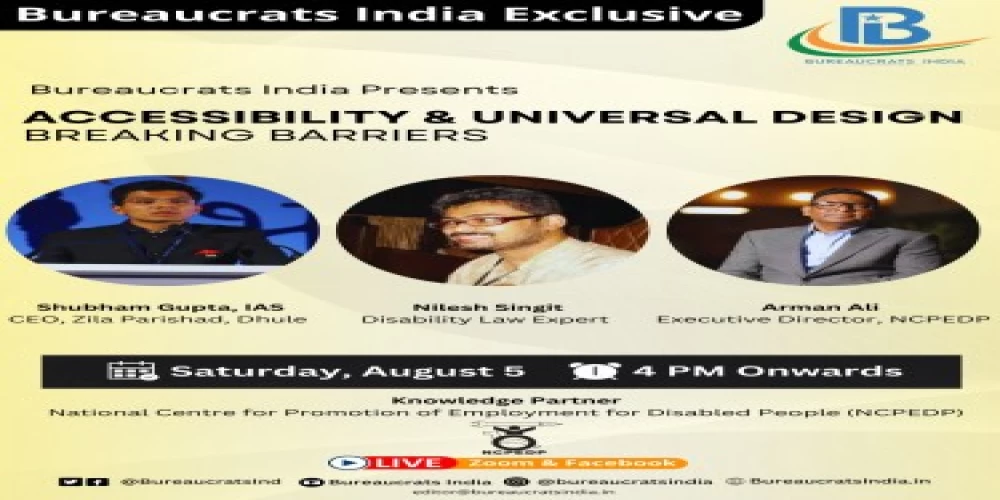
New Delhi: A webinar by Bureaucrats India on Saturday focused on accessibility and Universal Design and shed light on the importance of prioritizing disabled individuals as a fundamental aspect, rather than an afterthought. Bringing together disability experts, government officials, and a distinguished journalist, the event emphasized the need for various approaches with accessibility as a steadfast requirement to achieve inclusivity for all.
During the webinar titled ‘Accessibility and Universal Design: Breaking Barriers,’ Shubham Gupta, the Chief Executive Officer of Zila Parishad in Dhule, Maharashtra, and a 2019 batch IAS officer, highlighted the significance of Universal Design in addressing challenges faced by disabled people in their daily lives. He commended the Indian and Maharashtra state governments for initiating the distribution of UDID (Unique Disability ID) since 2022, providing targeted intervention to nearly 1 crore disabled individuals. Additionally, he praised government initiatives that incentivize employees working in the disability sector and mandate government employees to contribute 5% of their income for the benefit of the disabled.
Arman Ali, Executive Director for National Centre for Promotion of Employment for Disabled People (NCPEDP), a 27-year-old organisation working on disability, stressed the need for a rights-based approach rather than a welfare approach, highlighting the importance of accessibility in empowering disabled individuals to contribute to their full potential. He called for nominations for the Universal Design Awards 2023, celebrating ideas and innovations that promote accessibility in various domains.
NCPEDP is calling entries for 14th edition of NCPEDP-Mphasis Universal Design Awards, which are given away every year to those who have been doing exemplary work towards the cause of accessibility and thus ensuring a life of equality and dignity for people with disabilities.
Nilesh Singit, a disability law expert, drew attention to the significance of accessibility in courtrooms, urging the provision of sign language interpretation, transcriptions, and live captioning during live telecasted court proceedings to ensure inclusivity.
Renowned journalist Ranjan Rajan advocated for personalized solutions, recognizing the uniqueness of each disability and its distinct challenges.
The webinar provided a platform to discuss the diverse challenges faced by the disability sector and commendable government initiatives promoting the welfare of disabled individuals in India.


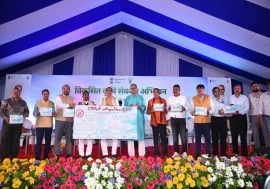
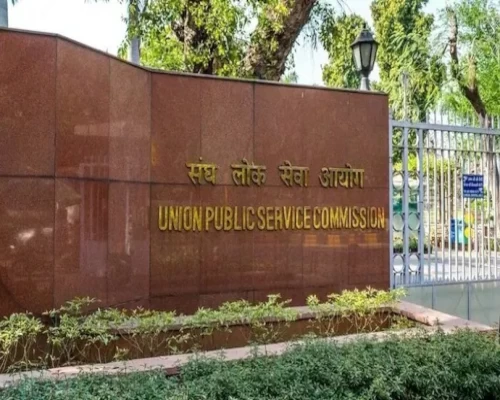


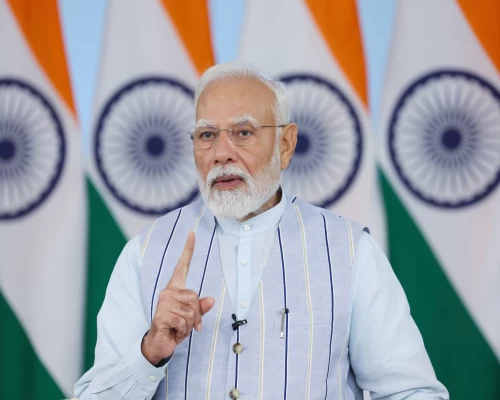
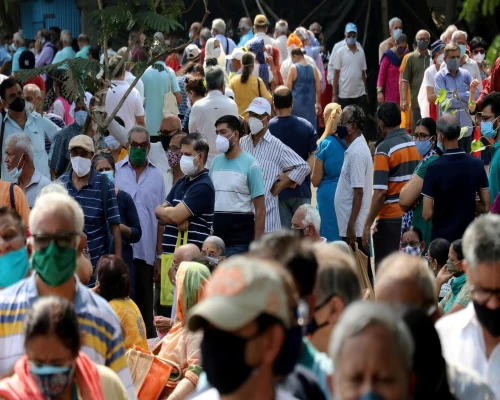

 (13)_500_x_400.webp)


